Core capacities of well-being
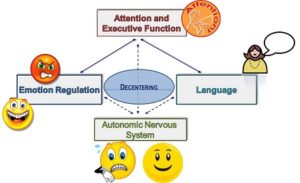 Investigation of the core processes in the mind and brain underlying well-being, and their modulation by contemplative training, has been central to our research from the start of the lab's research programme. This line of research resulted in several recent theoretical publications proposing the key mechanisms modified by contemplative practice - the metacognitive self-regulatory capacity of the mind (MSRC) and modes of existential awareness (MEAs) (Dorjee, 2016; Dorjee, 2017). The MSRC involves attention control and introspective meta-awareness, emotion regulation and conceptual processing. The MEAs are overarching phenomenological states and traits related to our sense of self and reality. We are currently validating measures of the MSCR and MEAs, if you practice any type of meditation consider participating in our validation study. Most recently, we have also postulated two more broadly applicable wellbeing capacities determining wellbeing across the lifespan (Dorjee, 2021). Fostering of these capacities is likely to play an important role in addressing the current and impending societal challenges. We are further refining this new framework and developing measures of the two wellbeing capacities.
Investigation of the core processes in the mind and brain underlying well-being, and their modulation by contemplative training, has been central to our research from the start of the lab's research programme. This line of research resulted in several recent theoretical publications proposing the key mechanisms modified by contemplative practice - the metacognitive self-regulatory capacity of the mind (MSRC) and modes of existential awareness (MEAs) (Dorjee, 2016; Dorjee, 2017). The MSRC involves attention control and introspective meta-awareness, emotion regulation and conceptual processing. The MEAs are overarching phenomenological states and traits related to our sense of self and reality. We are currently validating measures of the MSCR and MEAs, if you practice any type of meditation consider participating in our validation study. Most recently, we have also postulated two more broadly applicable wellbeing capacities determining wellbeing across the lifespan (Dorjee, 2021). Fostering of these capacities is likely to play an important role in addressing the current and impending societal challenges. We are further refining this new framework and developing measures of the two wellbeing capacities.
Publications on this topic:
Dorjee, D. (2020). Psychophysiology of Meditation. In Farias, M., Brazier, D. & Lalljee, M. 'The Oxford Handbook of Meditation'. Oxford University Press.
Developmental Contemplative Neuroscience
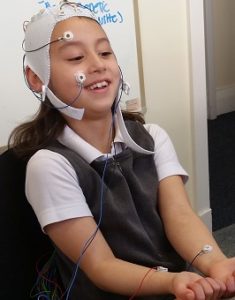 Over the last eight years we have conducted four controlled longitudinal studies in schools. The studies investigated the impact of secular contemplative training (mostly mindfulness-based programs) on attention and emotion regulation of children and adolescents measured by brain potential and heart-rate variability measures. Three of the studies involved older primary school children and in one study we worked with older adolescents. These studies followed an integrative neurodevelopmental framework we have proposed for future research in this area, exploring converging/diverging evidence across variety of measures and highlighting the importance of replication. These studies also reliably pioneered data collection using portable EEG systems in naturalistic school settings. In addition, we have completed two self-report and informant-report based studies in schools, one with children and one with older adolescents. In all these projects the programs were delivered to children and adolescents as part of regular school curricula by their own school teachers - an implementation model we think is most sustainable in larger-scale implementation. These projects have been supported by
Over the last eight years we have conducted four controlled longitudinal studies in schools. The studies investigated the impact of secular contemplative training (mostly mindfulness-based programs) on attention and emotion regulation of children and adolescents measured by brain potential and heart-rate variability measures. Three of the studies involved older primary school children and in one study we worked with older adolescents. These studies followed an integrative neurodevelopmental framework we have proposed for future research in this area, exploring converging/diverging evidence across variety of measures and highlighting the importance of replication. These studies also reliably pioneered data collection using portable EEG systems in naturalistic school settings. In addition, we have completed two self-report and informant-report based studies in schools, one with children and one with older adolescents. In all these projects the programs were delivered to children and adolescents as part of regular school curricula by their own school teachers - an implementation model we think is most sustainable in larger-scale implementation. These projects have been supported by
 the following funders:
the following funders:
Representative publications (further publications are under review and in preparation):
Hutchinson, J. K., Huws, J. C., & Dorjee, D. (2018). Exploring experiences of children in applying a school-based mindfulness programme to their lives. Journal of Child and Family Studies, 27(12), 3935-3951.
Cross-cultural neuroscience of well-being in schools
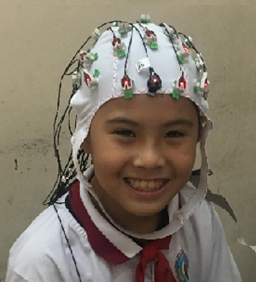
Existing studies on contemplative practices in primary schools are limited to the Western cultural context. Yet, emotion regulation is nurtured and processed through the underlying cultural values that children internalize during their development. A project conducted by Thy Nguyen under the supervision of Dr. Dorjee aims to examine, using electrophysiological and first-person assessments, the impact of a well-being curriculum with a strong mindfulness component on emotion regulation in Vietnamese primary school children. Of  particular interest to us is the use of specific strategies to regulate emotions and inhibition control as an important factor of emotion regulation. This project is supported by the Mind and Life 1440 Award to Thy Nguyen (PI) with Dr. Dorjee as the Co-I. The baseline data has been collected and the post-testing will take place in Febrary-March 2018. We expect the first findings of the study to be published in 2021.
particular interest to us is the use of specific strategies to regulate emotions and inhibition control as an important factor of emotion regulation. This project is supported by the Mind and Life 1440 Award to Thy Nguyen (PI) with Dr. Dorjee as the Co-I. The baseline data has been collected and the post-testing will take place in Febrary-March 2018. We expect the first findings of the study to be published in 2021.
Nguyen, T. & Dorjee, D. (2019, June). Dispositional mindfulness and event-related potential (ERP) markers of emotion processing in Vietnamese children. Talk presented at the Neuroscience of Mindfulness Conference 2019. Madrid, Spain.
Nguyen, T. & Dorjee, D. (2017, July). The impact of mindfulness training on emotion regulation of primary school children in Vietnamese cultural context. Mindfulness in Society International Conference. Chester, UK.
Neuroscience of mindfulness in aging
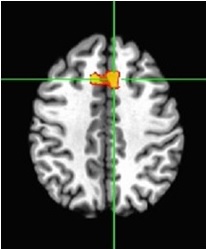
So far two studies in our lab investigated the mechanisms of mindfulness in aging. The first study examined the relationship between trait mindfulness and a range of neuropsychological and self-report measures of emotion regulation and cognitive control. The second study was a pseudo-radomized controlled pilot trial conducted as part of her PhD project by Shelby DeMeulenaere under the supervision of Dr. Dorjee. This longitudinal study involved healthy older adults who attended a standard 8-week Mindfulness-based Stress Reduction course. The assessments consisted of several neuroscientific measures including event-related brain potentials, DTI, fMRI based default-mode network assessments at rest together with neuropsychological and self-report assessments of emotion regulation and cognitive control. The initial findings of the study have been recently presented in a conference talk and we expect first papers reporting on the findings to be published in 2018.
DeMeulenaere, S., Dorjee, D., & Mullins, P. (2017, July). The effects of a Mindfulness-Based Stress Reduction course on neurometabolite markers of dementia and aging. Mindfulness in Society International Conference. Chester, UK.
Contemplative neuroscience across meditation traditions

This research topic closely overlaps with our investigations of core mechanisms underlying well-being and their modulation by contemplative practice. One of the key questions in this research is whether and how various contemplative practices target different aspects of well-being mechanisms. Possible answers to this question have strong implications for well-being enhancing and therapeutic applications of contemplative practices. So far the most extensive project on this topic from our lab examined similarities and differences in modulation of conceptual processes and associated brain indexes by mindfulness practice and Christian Ignatian meditation training. Initial findings from this research will be published in 2021.
similarities and differences in modulation of conceptual processes and associated brain indexes by mindfulness practice and Christian Ignatian meditation training. Initial findings from this research will be published in 2021.
Relevant publications:
Dorjee, D. (2020). Psychophysiology of Meditation. In Farias, M., Brazier, D. & Lalljee, M. 'The Oxford Handbook of Meditation'. Oxford University Press.
Neuroscience of mindful emotion regulation
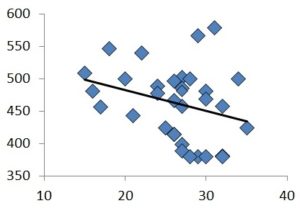
Mindfulness as a non-judgmental non-reactive present moment attention has been in the literature discussed as a possible emotion regulation regulation strategy distinct from reappraisal or suppression of emotions. However, arguments have also been made to the contrary, equating mindfulness with reappraisal or distraction. Several electrophysiological studies with young adults in our lab aimed to address these conflicting proposals with interesting initial findings. Publication of the first study from our lab particularly addressing this research question is expected in 2021.
Kaunhoven, R., & Dorjee, D. (2014, April). MBSR decreases negativity bias: A P200 study. Talk presented at the Cognitive Neuroscience of Mindfulness Conference. Bangor, UK.
